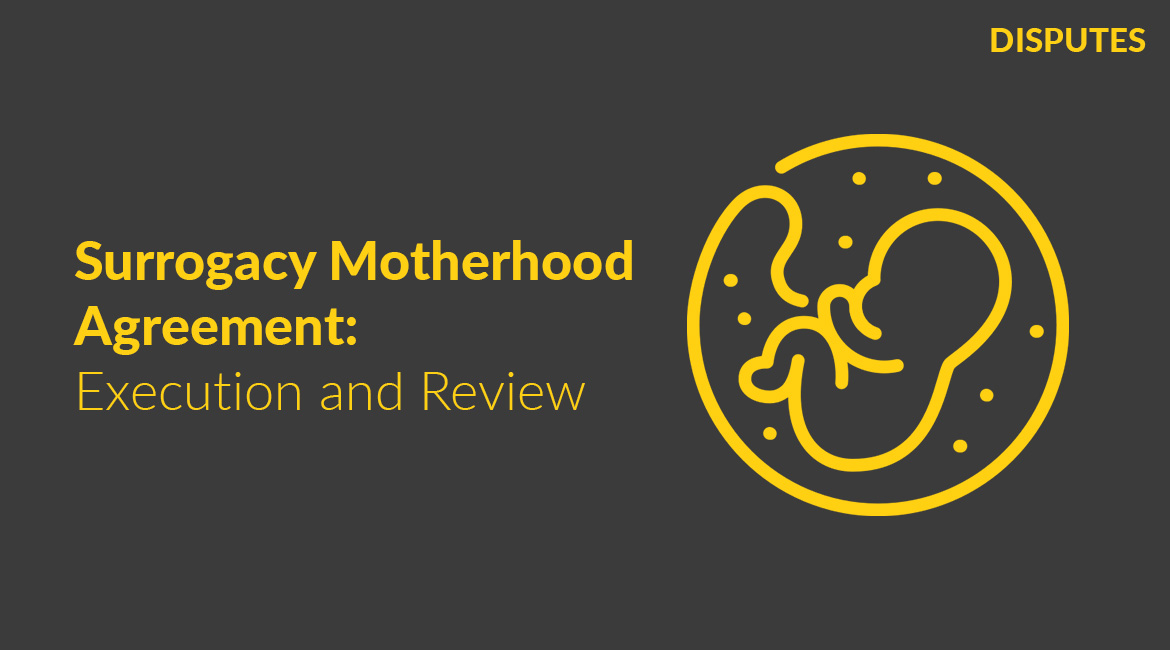Successful Surrogacy Agreement Review and Execution: International Clients Case Study
Introduction
In May 2025, Disputes Law Firm was retained by a married couple - citizens of the Republic of Poland and Portugal - to conduct a comprehensive review of a gestational surrogacy agreement previously drafted by another attorney, and to facilitate the execution of the surrogacy contract in Kyiv, Ukraine.
As the clients were residing outside Ukraine, it was critical that amendments be made to the agreement in their interests, and that authorized counsel participate in the contract execution before a notary public in Kyiv on their behalf.
Case Specifics
The couple had elected to engage with a different surrogate mother Ukraine candidate than the one proposed by their fertility clinic. In such circumstances, it is essential to retain independent surrogacy solicitors, as surrogacy agreements contain numerous legal complexities: payment terms and disbursement schedules, circumstances where compensation may be withheld or where the surrogate mother may be liable for damages, medical requirements and restrictions, and contract termination provisions.
Legal Framework
The surrogacy Ukraine agreement was executed in accordance with Order No. 787 of the Ministry of Health of Ukraine dated September 9, 2013 "On Approval of the Procedure for the Application of Assisted Reproductive Technologies in Ukraine," Article 123 of the Family Code of Ukraine, and the Rules on State Registration of Civil Status Acts in Ukraine.
Essential requirements for surrogate motherhood in Ukraine include presence of medical indications, genetic relationship between the intended parents and the child, legal capacity and majority of the surrogate mother, evidence of her own healthy child, psychiatric evaluation (pursuant to amendments dated March 6, 2024), and absence of medical contraindications.
Our Legal Services
Pursuant to Task No. 1 dated May 22, 2025, Disputes Law Firm provided comprehensive legal assistance to the clients.
Agreement Review and Amendment. We conducted a thorough analysis of the surrogacy agreement draft, corrected errors and inconsistencies, and implemented amendments in the clients' interests. Specifically, we refined the terms for monthly compensation, final compensation upon live birth, and housing allowance commencing in the second trimester.
Party Coordination. Junior partner Roman Kudlai, acting under notarized power of attorney from the client couple, organized a meeting with the surrogate mother for personal introduction and discussion of collaboration details.
Contract Execution Assistance. Our representative participated in the execution of the agreement with the medical center on behalf of the clients, and ensured the signing and notarization of the primary surrogacy agreement. Additionally, we facilitated the execution of the embryo retrieval and storage agreement.
Documentation Support. We prepared additional copies of client documentation, arranged for document translation, and submitted materials to the medical center. All costs for international delivery, translation services, and notarization were pre-agreed with the clients.
Medical Procedure Representation. We ensured counsel presence at the medical center on the day of embryo transfer in the clients' interests.
Agreement Provisions
The agreement contained detailed financial obligations provisions. It stipulated an initial payment upon notarization, payment for each embryo transfer procedure, monthly compensation throughout pregnancy, and final compensation upon live birth. Compensation for cesarean section and hysterectomy scenarios were also comprehensively addressed.
The agreement contemplated various pregnancy termination scenarios with corresponding compensation depending on gestational age. In the event of surrogate mother death resulting from program complications, heir compensation was provided.
Particular attention was given to surrogate mother obligations: maintaining a healthy lifestyle, alcohol and tobacco prohibition, regular medical attendance, immediate notification of any health status changes. The agreement required relocation to Lviv by the 32nd week of gestation, and immediate relocation to a safe region upon military conflict escalation.
Conclusions
This case demonstrates the feasibility of conducting comprehensive surrogacy programs for international clients in remote mode. During martial law in Ukraine, foreign clients requiring assisted reproductive technologies, specifically surrogate motherhood Ukraine programs, have viable opportunities to participate in programs entirely remotely through properly notarized and legalized powers of attorney, combined with reliable professional assistance from Disputes Law Firm.
Our experience as surrogacy attorneys demonstrates that international intended parents can successfully navigate the complex legal landscape of surrogacy in Ukraine even during challenging circumstances. The combination of experienced surrogacy lawyer expertise, proper documentation, and remote legal representation ensures comprehensive protection of client interests throughout the entire surrogate motherhood process.

 EN
EN  UA
UA 






